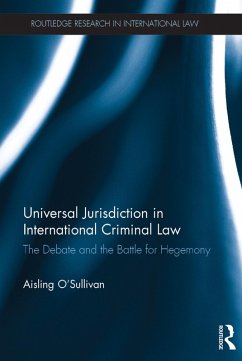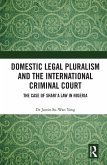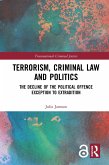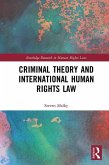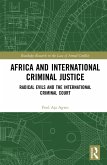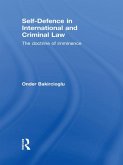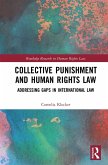This book explores the debate over universal jurisdiction in international criminal law, aiming to unpack a practice in which international lawyers continue to disagree over the concept of universal jurisdiction. Using Martti Koskenniemi's work as a foil, this book exposes the argumentative techniques in operation in national and international adjudication since the 1990s. Drawing on overarching patterns within the debate, Aisling O'Sullivan argues that it is bounded by a tension between contrasting political preferences or positions, labelled as moralist ("ending impunity") and formalist ("avoiding abuse") and she reads the debate as a movement of hegemonic and counter-hegemonic positions that struggle for hegemonic control. However, she draws out how these positions (moralist/formalist) merge into one another and this produces a tendency towards a "middle" position that continues to prefer a particular preference (moralist or formalist). Aisling O'Sullivan then traces the transformation towards this tendency that reflects an internal split among international lawyers between building a utopia ("court of humanity") and recognizing its impossibility of being realized.
Dieser Download kann aus rechtlichen Gründen nur mit Rechnungsadresse in A, B, BG, CY, CZ, D, DK, EW, E, FIN, F, GR, HR, H, IRL, I, LT, L, LR, M, NL, PL, P, R, S, SLO, SK ausgeliefert werden.

